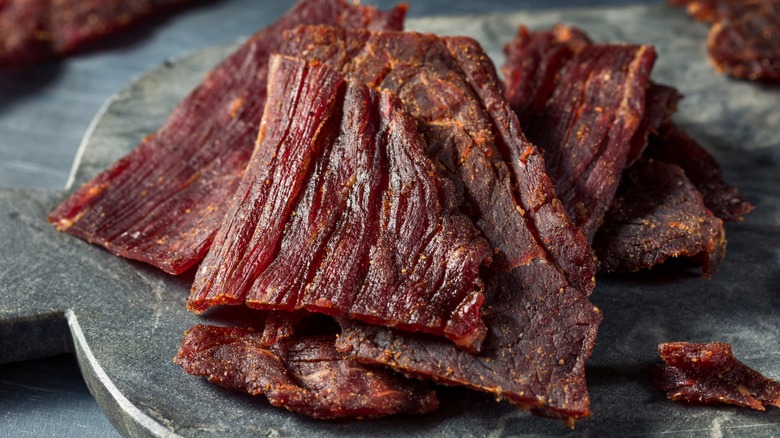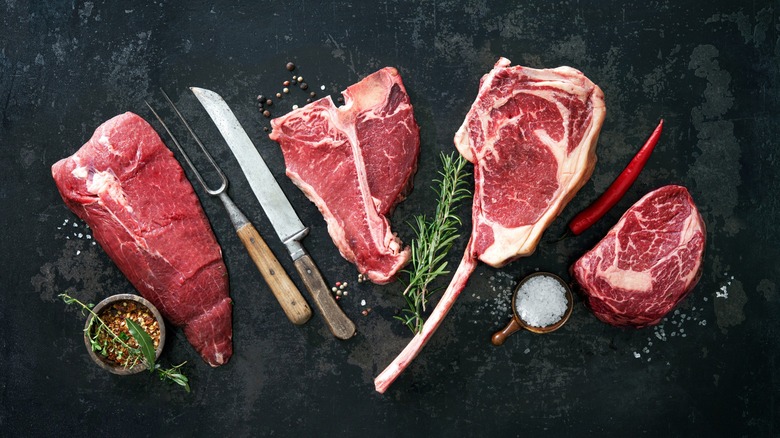The Type Of Cuts You Should Avoid When Making Beef Jerky
Beef jerky is a cherished snack for many, celebrated for its rich, savory flavor and satisfying chewiness. When setting out to make this delicious treat at home, the cut of meat you choose to work with is critically influential in determining the quality of the jerky. It's imperative to avoid certain types to ensure your beef jerky is not just flavorful but also has the right texture and consistency. Lean cuts of meat not only assure a cleaner and more consistent taste but also contribute positively to the texture and shelf-life of the final jerky product.
This means you should avoid overly fatty meat. If a cut is on the fattier side, you should trim off the excess fat, aiming to achieve a composition of less than 10% fat content. Excessive fat interferes with the dehydration process, making it difficult for the meat to lose moisture effectively. It also significantly impacts the texture, making the jerky unpleasantly greasy. Furthermore, excess fat is a detriment to the jerky's longevity. Fat is prone to oxidation and can cause the jerky to go rancid quickly.
Other factors to avoid in your cut for a perfect beef jerky
Moving beyond the fat content, a few other factors warrant attention when choosing a cut for beef jerky. Excessively tough meat, full of connective tissues, should be avoided. Such cuts can make chewing the jerky strenuous and less enjoyable. Tough cuts are usually from muscles that are heavily exercised, and while some toughness is desired in jerky, an excess can ruin the experience. The freshness of the meat is another crucial aspect. Older meat cuts should be avoided, as the best jerky is produced from the freshest beef. Fresh cuts enhance the flavor profile of the jerky, ensuring that the natural taste of beef is retained and concentrated during the dehydration process.
When considering the cost, opting for overly expensive cuts isn't necessary or even advisable. Premium cuts, such as filet mignon, despite their tenderness and marbling, do not offer a significant advantage when making jerky. Since the dehydration process alters the meat's texture and intensifies its flavors, the extra investment in pricier cuts doesn't necessarily translate into a better outcome. So the next time you're preparing to make homemade beef jerky, go for fresh, reasonably tender, and lean pieces of beef that are not too costly.

